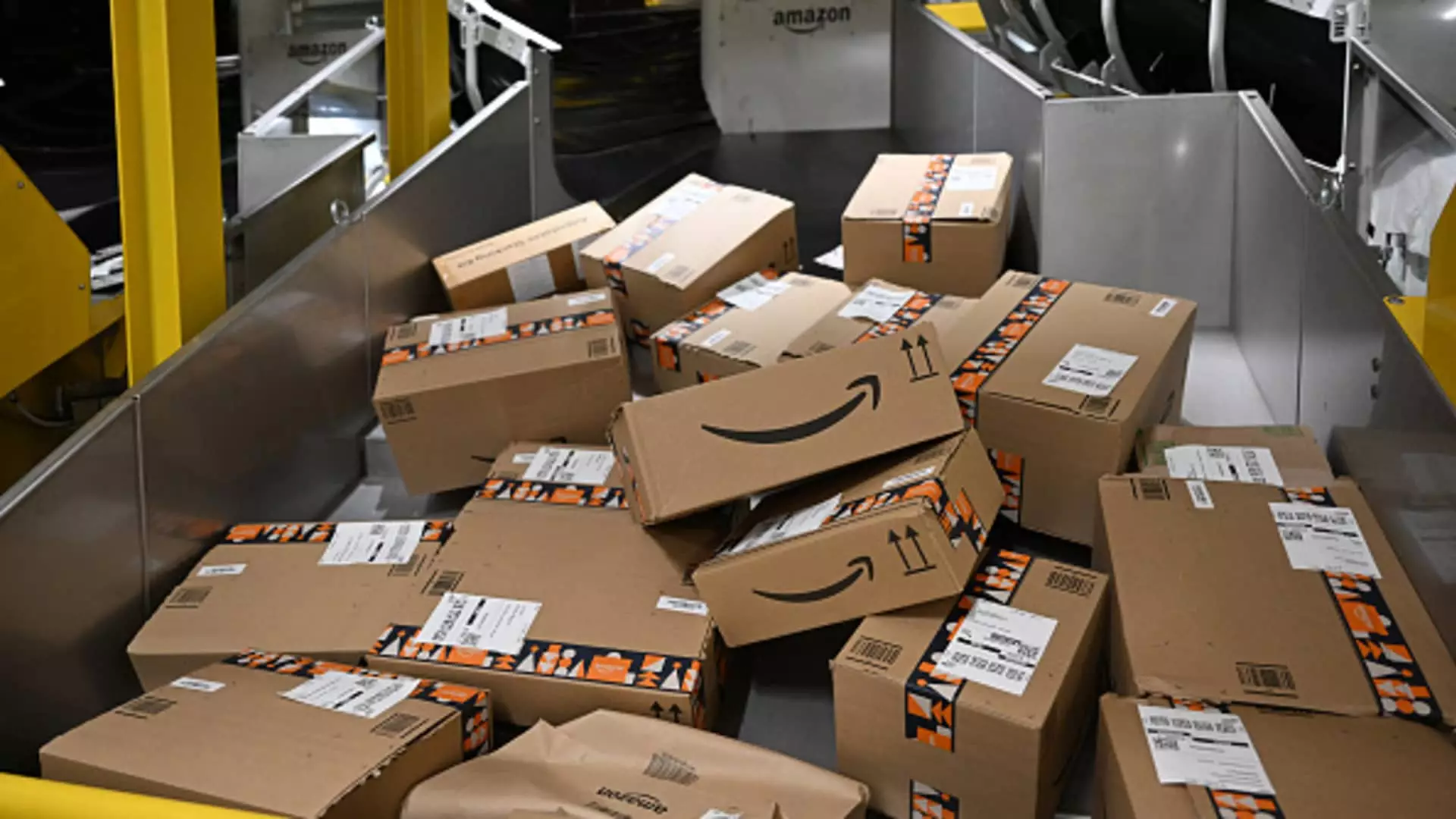The recent scrutiny from German antitrust regulators sheds light on a significant concern regarding Amazon’s influence in the e-commerce landscape. In a preliminary assessment, Germany’s Federal Cartel Office has posed critical questions surrounding Amazon’s pricing mechanisms for third-party sellers. The assertion that these practices could violate competition laws is not merely bureaucratic nit-picking; it raises fundamental issues about market fairness and the integrity of online retail.
Amazon’s sophisticated algorithms dictate the visibility and viability of products offered by merchants on its platform. By flagging items with “too high” or “uncompetitive” pricing, the company essentially wields the power to manipulate search results and advertising options, potentially stifling legitimate competition. This lack of transparency is alarming. How can sellers operate freely when the very platform they depend on imposes invisible shackles on their pricing strategies? It’s a provocative reminder of how a single entity can jeopardize the entrepreneurial spirit in e-commerce.
The “Buy Box” Dilemma
The infamous “buy box” represents the pinnacle of product visibility on Amazon’s marketplace. This coveted space can make or break a seller’s success, and the cartel office’s assessment highlights the precariousness that comes with this dependence. Featured products enjoy a significant advantage, while those that fall into the algorithmic black hole face an uphill battle for consumer attention. The power dynamics at play are troubling, especially when Amazon itself often competes with these third-party sellers.
Andreas Mundt, the president of the Federal Cartel Office, articulates a critical point: Amazon’s dual role as a platform provider and a competitor fundamentally undermines the level playing field that fair competition necessitates. If sellers can’t competitively price their goods without fear of algorithmic penalties, then the very essence of free-market competition is at risk. Buyers, perhaps unknowingly, are caught in this web, led to believe they are enjoying “competitive pricing,” when they may actually be victims of a skewed marketplace.
Amazon’s Defensive Stance
In response to the Cartel Office’s findings, Amazon has fervently defended its operational mechanisms, framing them as necessary for preserving a quality shopping experience. The company argues that restricting its pricing algorithms would result in a marketplace riddled with unfair pricing practices, thus harming consumers. This paradox raises an immediate question: is Amazon truly concerned about protecting the rights and interests of consumers, or is this an elaborate ruse to maintain its dominance and suppress meaningful competition?
The response from Amazon is indicative of an underlying tension in the corporate world: the struggle to reconcile competitive practices with ethical responsibility. While it is understandable for Amazon to aim for a streamlined shopping experience for consumers, it must not come at the expense of smaller retailers who rely on fair access to this platform for their livelihood. The real-world implications of such a monopolistic approach could resonate far beyond the digital marketplace, leading to fewer choices for buyers and outlandish pricing norms.
The Broader Implications of Antitrust Scrutiny
As the EU and U.S. regulators continue to scrutinize Amazon’s operations, the stakes aren’t just high for the tech giant; they are monumental for the future of e-commerce. Amazon struck a deal with EU regulators in 2022, agreeing to adjust its practices in response to concerns over competitive fairness. The hope is that these regulations will serve as a blueprint for a more equitable landscape for all players in the market.
Yet the looming investigations, including the one from the U.S. Federal Trade Commission, signify an ongoing power struggle between regulating bodies and multinational corporations. As these cases unfold, they could set crucial precedents for how tech companies are held accountable for their market influence. The outcomes may eventually dictate not just operational guidelines for e-commerce but also establish what kind of commercial behaviors are acceptable in the eyes of society.
The Call for Action and Vigilance
Fundamentally, the situation evokes a larger conversation about the role of tech companies in our economy. If today’s tech giants like Amazon can monopolize market dynamics with little oversight, what does that mean for the future of entrepreneurship and innovation? It is critical that regulators stay vigilant and active in their scrutiny of these corporate practices, ensuring that the market does not devolve into an arena dominated by a handful of players wielding excessive control.
As consumers, advocates for fair competition need to remain mindful and proactive. Awareness is the first step towards fostering an environment where fair trading practices thrive, and where innovation is not stifled by the heavy hand of corporate dominance. Only time will tell if the current investigations will lead to meaningful change or if we will continue to live under the shadow of a monopolistic e-commerce giant.

Leave a Reply